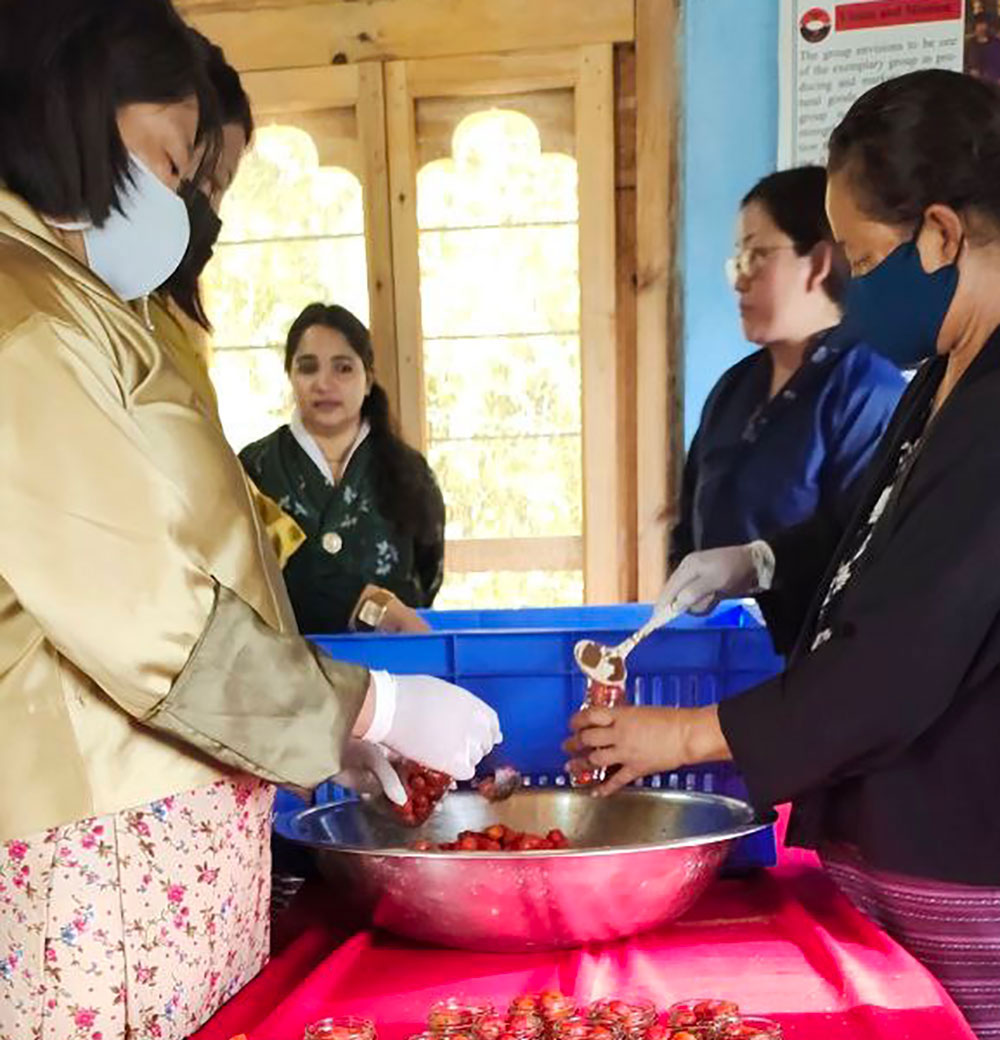Phurpa Lhamo | Wangdue
Months before the red dolley pickles are bottled and sent to the market, 15 men and women of the Palokha Sonam Yargay Khenphen Tshogpa grow the red dolley chilies on their 20-decimals of land in Palokha in Ruebisa, Wangdue.
After harvest, the chilies are soaked in plastic jars with brine solution for three weeks. After three weeks of fermentation, mustard oil and preservatives are added.
The processed dolley pickles are then shipped to the market for sale.
According to the tshogpa’s chairperson, Sonam Dhendup, the tshogpa was initiated in 2005 and ventured into dolley pickle business in 2012.The dzongkhag administration provided the team with training and equipment such as an induction bottle sealing machine, aluminum foil, PVC sleeves, an electric blower, and product containers in 2018.
However, the tshogpa has not been able to capture the market.
“We completely stopped work last year because gatherings weren’t allowed due to the pandemic,” said Sonam Dhendup.
Sonam Dhendup said that the dolley bottles had to be divided among the members. “We don’t know how to sell the product. It was sold in Paro, Punakha, Wangdue, and Thimphu but demand is not stable.”
The 15 members of the tshogpa even started door-to-door marketing.
Ruebisa gewog agriculture extension officer, Tika Ram Bhandari, said that the farmers sold the chilies (not pickles) to farmers from Tsirang who made dolley pickles too.
However, with a recent round of training on a new way of processing dolley chilies, the tshogpa hopes to improve sales.
With support from the Department of Agricultural Marketing and Cooperatives (DAMC), the team recently received training on two-day dolley processing in September. Farmers in the group made around 120kg of dolley pickles in the last two days.
Sonam Dhendup said that the tshogpa would double production if the market situation improves.
“We certainly need to hone our advertising and marketing skills.”
A bottle of dolley pickles is sold for Nu 120 to the wholesalers.
“I hope that the dzongkhag would help us market the products. They have given us training and equipment in the past too.”
The tshogpa currently has a Nu 1.7 million (M) fund, which has been loaned to the farmers in the village. The tshogpa was started with a fee collection of Nu 100 per member, per month.
Edited by Jigme Wangchuk


